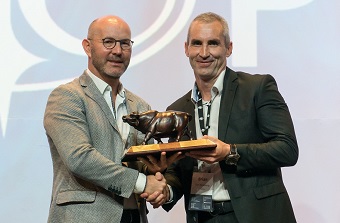
Bank Windhoek’s Sustainability Bond raises N$227 million through private placement

Bank Windhoek on 2 June 2021, launched Namibia’s first Sustainability Bond, with which the Bank obtained alternative sources of funding to the value of N$227 million on a private placement basis.
As with the Green Bond in 2019, the Sustainability Bond is also a first for commercial financial services institutions in southern Africa. Sustainability Bonds, commonly referred to as ‘use of proceeds bonds’, are unique, fixed-income instruments and investment vehicles for commercial and institutional investors. The proceeds are exclusively applied to finance or re-finance a combination of both green and social projects, in part or in full, new or existing.
For investors, Sustainability Bonds provide an opportunity to support socially and environmentally responsible projects, along with the additional benefits associated with investing in an award-winning, highly regulated and “risk-free “instrument with a strong emphasis on transparency and impact disclosure.
Projects eligible for funding include those focussed on renewable energy, energy efficiency, green buildings, sustainable waste management and a focus on sustainable agriculture and tourism, and investments into quality, accessible and innovative healthcare and education facilities.
Bank Windhoek will evaluate social projects based on the primary objectives and the underlying impact of the project. The Bank will report on the environmental and social effects of the projects financed in its annual Sustainable Bond Impact Report.
“The Covid-19 pandemic led to a steep increase in demand for innovative financial products like Green and Sustainable Bonds that facilitate and promote a shift to a more sustainable economy. In Namibia, we experience global warming, and the effects of climate change on our local environment and businesses are evident. It is important to note that the proceeds of the Sustainable Bond will support a wide array of projects offering broad societal, economic and environmental benefits,” said Bank Windhoek’s Manager of Sustainable Investments and Deal Origination, Ruan Bestbier.
Bank Windhoek’s Managing Director, Baronice Hans, said both the Green and Sustainability Bond issuances are milestones, not only for Bank Windhoek and Capricorn Group but Namibia as a nation.
“We unequivocally set the tone of our commitment to sustainable finance. We believe that the Green and Sustainability Bond issuances enable our clients’ sustainability requirements. These Bonds enable them to create a complete value chain, from raising favourable funding to offering green loans with attractive and competitive terms to facilitating the transition to a low-carbon and client resilient future,” Hans said.
Bank Windhoek’s Chief Treasurer, Claire Hobbs added sustainable bonds are a new addition to the cache of financial instruments.
“Along with established Green Bonds, Sustainability Bonds promote positive change in society and the environment and provide investors with a means of aligning their asset allocations with sustainability objectives in a meaningful way,” said Hobbs.
During 2020, sustainable debt issuances reached a record high of US$415 billion globally, up 60% from the prior year.
Green bonds still dominate the sustainable finance market. However, other products, such as Sustainability Bonds, are playing catch-up, with the market increasingly becoming diversified in the low-interest-rate environment to meet growing investor and client demand.













































